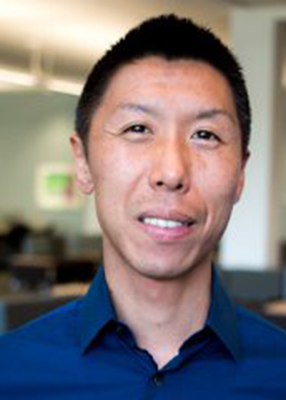About
Kenta Asakura is currently an Associate Professor at Smith College School for Social Work (Northampton, MA). Seeking to advance the practice and teaching of clinical social work with marginalized communities, Asakura leads a program of simulation-based research. Using simulation (i.e., working with professional actors trained to portray realistic and complex client scenarios) as a research method, Asakura studies clinical social work competencies, particularly the application of theory, values and ethics, as well as the clinician’s cognitive and affective processes. Asakura is currently working with Drs. Barbara Lee and Hannah Kia at UBC on a multi-year, multi-site SSHRC-funded project titled Bridging Critical Social Work Education and Clinical Practice: A Design-Based Research Study Using Simulated Practice.
Prior to joining Smith in 2022, Asakura spent seven years at Carleton University School of Social Work (Ottawa, Canada), where he was an Associate Professor and the Director of SIM Social Work Research Lab. Funded by Canada Foundation for Innovation, this was the first social work research lab in North America designed for collecting and analyzing real-time, video-recorded data on social workers’ engagement with simulated clients to better understand clinical competencies.
Teaching
Publications
Selected Publications
Asakura, K. & Bogo, M. (2021). Editors, Special Issue on Advancing Clinical Social Work Education and Practice through Simulation, Clinical Social Work Journal, 49(2).
Occhiuto, K., Sewell, K., & Asakura, K. (Accepted). Pivoting to online live-streamed simulations: Students’ experiences in clinical social work education. Journal of Social Work Education.
Asakura, K., Sewell, K., Rawlings, M., Bay, U., & Kourgiantakis, T. (2022). Marion Bogo, a visionary, innovator and leader: Ground-breaking work on simulation-based social work education. Journal of Social Work Education. Published online first, https://doi.org/10.1080/10437797.2022.2069626
Asakura, K., Occhiuto, K., Tarshis, S., & Dubrowski (2021). Designing and conducting healthcare simulations: Contributions from social work. Cureus, doi: 10.7759/cureus.16193
Asakura, K., & Bogo, M. (2021). The use of simulation in advancing clinical social work education and practice. Clinical Social Work Journal, 49(2), 111-116. https://doi.org/10.1007/s10615-021-00810-2
Todd, S., Occhiunto, K., Asakura, K., & Grassau, P. (2021). Navigating uncertainty in clinical social work practice: A simulation-based study. Clinical Social Work Journal, 49(2), 286-297, https://doi.org/10.1007/s10615-021-00800-4
Sewell, K., Kao, D., & Asakura, K. (2021). Clinical supervision in frontline health care: A survey of social workers in Ontario, Canada. Social Work in Health Care. DOI: 10.1080/00981389.2021.1880532
Asakura, K., Gheorghe, R., Borgen, S., Sewell, K., & MacDonald, H. (2020). Using simulation as an investigative methodology in researching competencies of clinical social work practice: A scoping review. Clinical Social Work Journal, 49(2), 231-243, https://doi.org/10.1007/s10615-020-00772-x
Asakura, K., Lee, B., Occhiunto, K. & Kourgiantakis, T. (2020). Observational learning in simulation-based social work education: Comparison of interviewers and observers. Social Work Education: The International Journal, https://doi.org/10.1080/02615479.2020.1831467
Asakura, K., Occhiuto, K., Todd, S., Leithead, C., & Clapperton, R. (2020). A call to action on Artificial Intelligence and social work education: Lessons learned from a simulation project using Natural Language Processing. Journal of Teaching in Social Work, 40(5), 501-518 https://doi.org/10.1080/08841233.2020.1813234
Kourgiantakis, T., Saunders, J., Sewell, K., Asakura, K. & Bogo, M. (2020). Students’ conceptualization of culture and diversity in social work practice: A simulation-based study. Journal of Ethnic and Cultural Diversity, https://doi.org/10.1080/15313204.2020.1839618
Asakura, K., Lundy, J., Black, D., & Tierney, C. (2019). Art as a transformative practice: A participatory action research project with trans* youth. Qualitative Social Work, 19(5/6), 1061-1077. https://doi.org/10.1177/1473325019881226
Asakura, K., Strumm, B., Todd, S., & Varghese, R. (2019). What does social justice look like when sitting with clients?: A qualitative study of teaching clinical social work practice from a social justice perspective. Journal of Social Work Education.56(3), 442-455. https://doi.org/10.1080/10437797.2019.1656588
Todd, S., Asakura, K., Morris, B., Eagle, B., Park, G. (2019). Responding to student mental health concerns in social work education: Towards developing a heuristic blueprint. Social Work Education: The International Journal, 38(6), 779-796. https://doi.org/10.1080/02615479.2018.1563591
Tufford, L., Asakura, K., & Bogo, M. (2018). Students’ perceptions about simulation vs. role-plays in learning social work practice skills. Journal of Baccalaureate Social Work, 23(1), 249-267. https://doi.org/10.18084/1084-7219.23.1.249
Asakura, K., & Maurer, K. (2018). Attending to social justice in clinical social work: Supervision as a pedagogical space. Clinical Social Work Journal, 46(4), 289-297. doi.10.1007/s10615-018-0667-4
Asakura, K., Bogo, M., Good, B., & Power, R. (2018). Teaching Note— Social Work Serial: Using video-recorded simulated client sessions to teach social work practice. Journal of Social Work Education, 54(2), 397-404. doi: 10.1080/10437797.2017.1404525
Asakura, K., Todd, S., Eagle, B., & Morris, B. (2018). Strengthening the signature pedagogy of social work: Conceptualizing field coordination as a negotiated social work pedagogy. Journal of Teaching in Social Work, 38(2), 151-165. doi: 10.1080/08841233.2018.1436635.
Asakura, K. (2017). Paving pathways through the pain: A grounded theory of resilience among LGBTQ youth. Journal of Research on Adolescence, 27(3), 521-536.
Asakura, K. (2016). Extraordinary acts to “show up”: Conceptualizing resilience of LGBTQ youth. Youth & Society, 51(2), 268-285. 10.1177/0044118X16671430
Asakura, K. (2016). It takes a village: Applying a social ecological framework of resilience in working with LGBTQ youth. Families in Society, 97(1), 15-22.
Additional Description
Area of Scholarship: Clinical social work practice and education, simulation-based research
Area of Practice: Clinical supervision and consultation, working with queer and trans* youth and families, immigrants and refugees, and children, youth and families in care.
